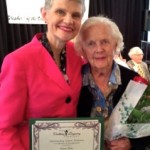 That favorite annual holiday – Halloween – is upon us. It got me thinking about how in our everyday lives we are capable of either tricking or treating others. Which do you do?
That favorite annual holiday – Halloween – is upon us. It got me thinking about how in our everyday lives we are capable of either tricking or treating others. Which do you do?
Trick
Do you trick people into thinking you are someone who you are not? Do you deliberately put on airs and misrepresent yourself to others? It’s time to take a long, hard look at yourself, and understand why you do this. Reveal your true authentic self for others to see.
Do you trick yourself into believing that you are not worthy? When you suffer from The Imposter Syndrome, you trick yourself into thinking that you are not as good as you really are and you are afraid that others will find out you’re not as good as they think you are. It’s time for a reality check and focus on feeling good about yourself and feeling worthy.
Do you trick others by compromising quality or taking short cuts? When you give 100% of yourself and do quality work, you demonstrate your integrity and gain credibility in the process.
Do you serve up tricks by being light hearted and funny? See? Not all tricks are bad. There are good tricks as well. When you can laugh at yourself and help others to laugh too, people will appreciate your sense of humor.
Treat
Do you treat all people equally, with dignity and respect? This simple act makes a big difference in how others see you. The dignity and respect you show to them will come back to you ten-fold.
Do you treat other people like they are more important than you? When you let others shine and support them in their dreams and aspirations, you are putting their needs before yours. It positions you as someone who cares.
How often do you treat others? I mean really treat them? Whether it’s giving a server a slightly bigger tip, giving a gift to someone just because you felt like it, or picking up the tab every once in a while for no reason, you are letting your benevolence shine.
As you participate in the festivities of Halloween this year, think about the “tricks” or “treats” that you are doling out. How can you treat others like they have value?




